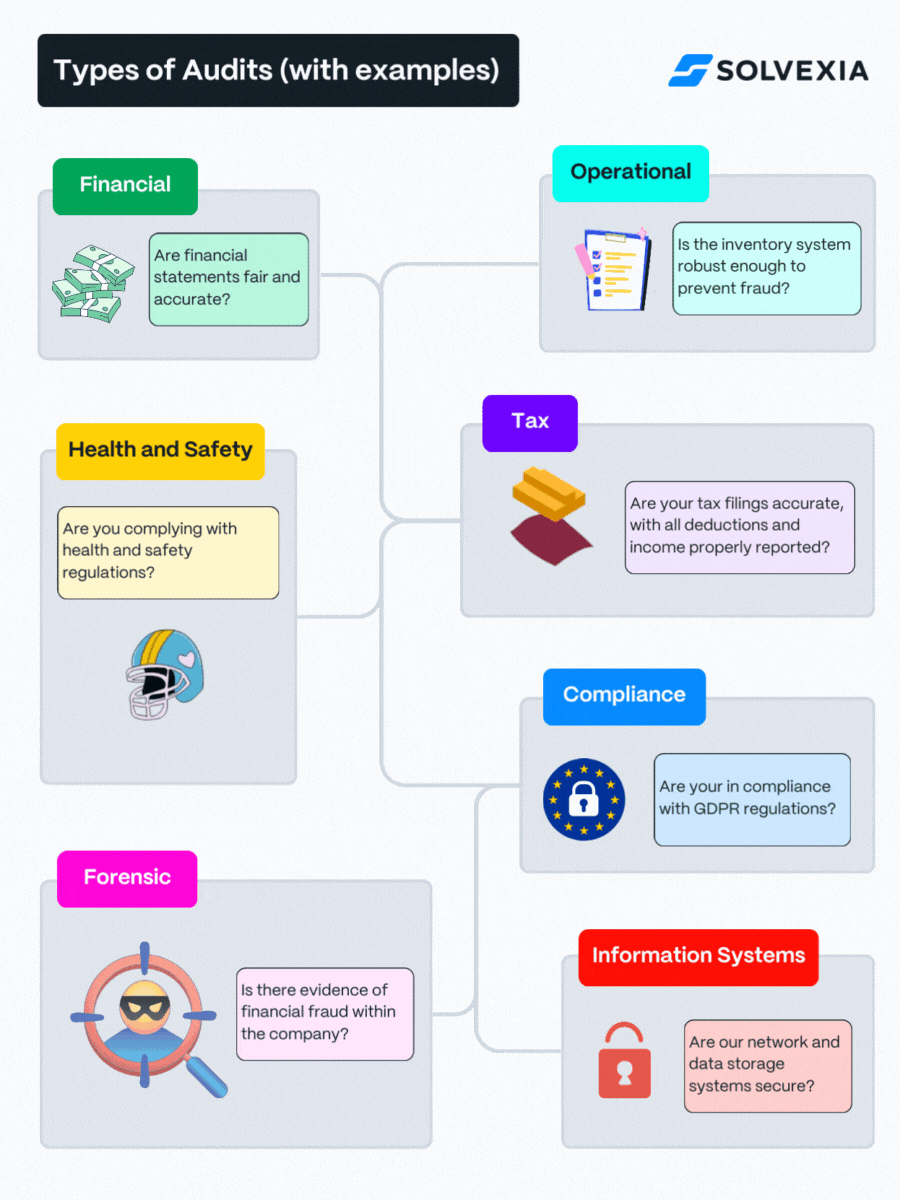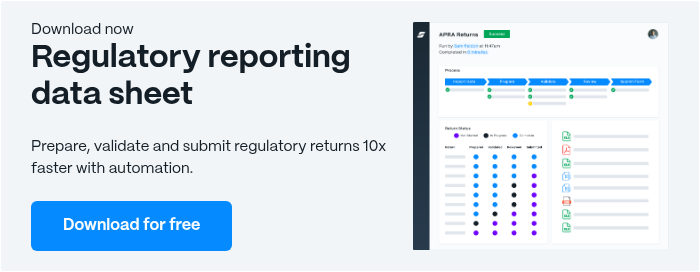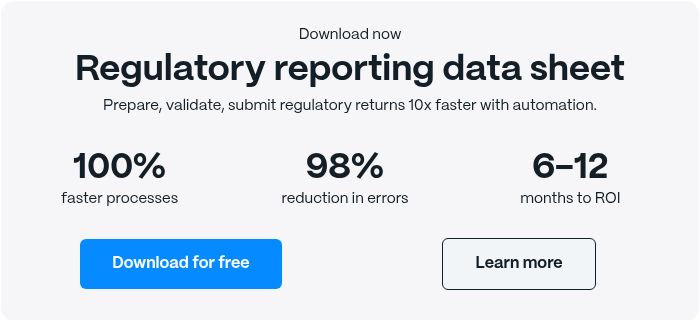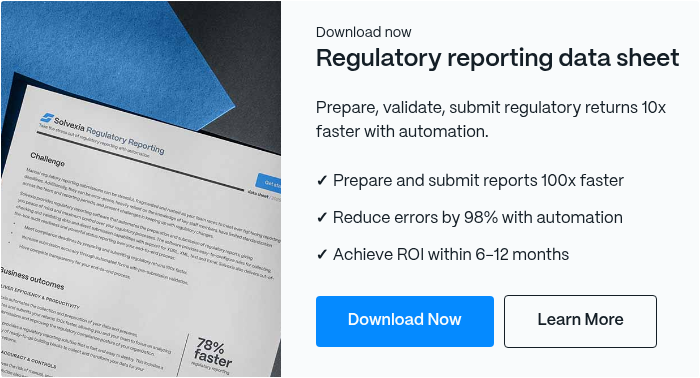10 Best Audit Skills for 2026: Enhance Accuracy and Efficiency

In the world of financial audits, a specific set of audit skills is crucial for ensuring accuracy and legality. According to the World Economic Forum's Future of Jobs Survey, information and data processing skills are projected to be of utmost importance for auditors, with an expected significance of 65%. As businesses and individuals alike understand the critical role of maintaining precise financial records for internal and external audits, the demand for proficient auditors with strong audit skills continues to rise.
But what exactly are these essential audit skills? From technical expertise in accounting principles to critical thinking and attention to detail, the modern auditor must possess a diverse skill set. In recent years, technology solutions like automation in auditing have also emerged as valuable tools to enhance an auditor's efficiency and accuracy.
In this article, we will take a deep dive into the world of audit skills. We'll explore the key skills every auditor should possess, examine the differences between external and internal audits, and discover how automation tools are revolutionizing the auditing process. By the end, you'll have a comprehensive understanding of what it takes to excel in the auditing profession.
Coming Up
4. What are the Different Types of Audits?
5. What Skills Do You Need as an Auditor?
6. What are the Qualities of an Auditor?
7. Essential Skills Needed for Auditing in 2026
8. How to Improve Auditing Skills?
9. What is the Role of Automation in Auditing?
What are Auditing Skills?
Auditing skills are essential competencies that allow professionals to review and analyze financial records, processes, and operations effectively. These skills include attention to detail, analytical thinking, and a deep understanding of regulatory requirements. Strong communication skills are also critical, as auditors must convey findings and recommendations clearly.
What Does an Auditor Do?
An auditor is a specialist who reviews companies' accounts to ensure that they are valid and legal. In some instances, an auditor may also serve in an advisory role, making recommendations about cost savings and risk aversion measures.
Auditors' day-to-day tasks will vary, but some of their key responsibilities include:
- Analyzing data
- Reviewing accounts and financial control systems
- Ensuring financial reports are accurate
- Identifying where processes have inefficiencies
- Recommending updates for process improvement
- Preparing financial statements and reports
- Communicating with stakeholders and managers to review their findings
- Reviewing wages
- Evaluating levels of financial risk
- Reviewing financial reports to ensure they are in line with accounting standards
After performing an audit, an auditor will present action items and recommendations to the organization using their key audit skills. They may recommend amendments to internal control systems, reporting procedures, or processes to optimize a company’s performance and reduce costs.
Who Employs Auditors?
Auditors have many options for where they wish to work. They can either be employed within the accounting departments of organizations, or they can work with independent and certified firms.
Internal auditors can work in-house within the accounting department of an organization, for an outsourced professional firm, or large companies and charities. Internal auditors are typically found in private businesses and have the main goal of optimizing processes in large public or regulated companies.
In addition to working on financial documentation and reviewing processes, internal auditors may be involved with reviewing a company’s ethical policies, environmental sustainability measures, reputation, and more.
External auditors can also work for private accounting firms or government agencies to execute mandatory audits for the public sector and governmental bodies. They may also need to review the finances of private businesses.
What are the Different Types of Audits?
There are more than a handful of types of audits. Let's take a look at some of them, as each relies on audit skills to perform. Understanding the differences between an internal audit and an external audit is crucial for ensuring comprehensive financial reviews.

Internal Audit: Ensuring Compliance and Efficiency
Someone within an organization performs an internal audit to help stakeholders and executives get a clear picture of the company's financial status. For example, internal audits are typically commissioned to review policy and legal compliance, operations, processes, and financing accounting.
- Purpose: To provide independent assurance that an organization's risk management, governance, and internal control processes are operating effectively.
- Example: An internal auditor may review a company's inventory management system to ensure that it is efficient and effective and that there are no opportunities for theft or fraud.
External Audit: Third-Party Verification
External audits are carried out by third parties. They review an organization's financial statements and reports to ensure they comply with accounting standards and laws. In most instances, external audits are more complex than internal audits.
If your organization uses an automation solution, it can greatly alleviate an auditor's burden by easily providing an audit trail and reviewing internal controls inherent in the system. Additionally, software solutions can process reconciliations and automate processes to streamline, achieve efficiency, and reduce errors, thereby improving audit accuracy.
- Purpose: To provide an independent opinion on an organization's financial statements, ensuring they are fairly presented and comply with applicable accounting standards.
- Example: An external auditor may review a company's financial statements to ensure they accurately reflect its financial position and performance.
Financial Audit: Evaluating Financial Health
A financial audit is focused on a business's financial status. Auditors review records, from expenses to investments to assets and revenue. These audits are typically performed to provide a review for investors and shareholders. Strong analytical skills and attention to detail are essential for effective financial audits.
Operational Audit: Optimizing Business Processes
An operational audit reviews an organization's operations, including goals, culture, policies, and procedures. The goal is to spot inefficiency and areas ripe for process improvement. For example, automation tools can improve approval processes and remove key person dependency, enhancing risk management.
At the same time, solutions with advanced analytics can help pinpoint areas for improvement or steps within the process that can be removed.
Other Types of Audits: Compliance, Forensic, and More
Additional audits include compliance audits, information system audits, pay audits, forensic audits, payroll audits, statutory audits, tax audits, and more. Each type of audit requires a unique set of skills and knowledge, such as business acumen and problem-solving abilities.
- Compliance Audit:
- Purpose: To determine whether an organization follows specific laws, regulations, policies, or procedures.
- Example: A compliance auditor may review a hospital's patient privacy practices to ensure compliance with HIPAA regulations.
- Forensic Audit:
- Purpose: To examine an organization's financial records to detect or prevent fraud.
- Example: A forensic auditor may be called in to investigate if there is suspicion of embezzlement by an employee.
What Skills Do You Need as an Auditor?
To be a successful auditor, you need a diverse set of skills. Some of the most important skills include:
- Analytical Skills: Auditors must be able to analyze large amounts of data, identify patterns, and draw conclusions. This involves being able to interpret financial statements, recognize discrepancies, and investigate potential issues.
- Attention to Detail: Auditing requires a meticulous eye for detail. Auditors must be able to spot even the smallest irregularities or inconsistencies in financial records.
- Communication Skills: Auditors must be able to clearly communicate their findings, both in writing and verbally. They need to be able to explain complex financial concepts to those who may not have a background in accounting.
- Integrity: Auditors must maintain a high level of integrity and objectivity. They must be honest and ethical in their work and not be swayed by pressure from clients or management.
What are the Qualities of an Auditor?
In addition to the skills mentioned above, there are certain qualities that make for a good auditor:
- Professional Skepticism: A good auditor has a questioning mind and is not afraid to challenge assumptions. They maintain a healthy level of skepticism and are always looking for evidence to support their conclusions.
- Adaptability: Auditing standards and regulations are constantly changing. A good auditor is able to adapt to these changes and stay up-to-date with the latest developments in the field.
- Teamwork: Auditing often involves working as part of a team. A good auditor is able to collaborate effectively with others, share information, and contribute to the team's success.
- Strong Work Ethic: Auditing can be a demanding profession, often involving long hours and tight deadlines. A good auditor has a strong work ethic and is committed to getting the job done, even under pressure.
Essential Skills Needed for Auditing in 2026
Auditors need to possess a wide range of hard and soft skills, regardless of employment. The nature of the job demands high attention to detail, financial and business acumen, and immense integrity.
Let's review some of the necessary skills of an auditor.
1. Communication Skills: Clear and Effective Interaction
As with any job, communication skills are a must. When it comes to auditing, this skill sits near the top of the list because an auditor must succinctly convey their thoughts, suggestions, and ideas to stakeholders, employees, investors, and the like.
Not only do auditors get to make suggestions that can reshape an organization, but they must also be able to present their findings easily. That's why communication skills are ranked almost as highly as technological skills.
- Example: An auditor presents their findings to a company's board of directors, explaining the potential risks and recommending corrective actions.
2. Critical Thinking: Analytical and Logical Reasoning
Critical thinking can be thought of as using logic to find solutions. When auditors review a company's records and statements, they have to understand the full picture. Since their solutions and recommendations can transform a business for the better, critical thinking plays a key part in their work. Auditors must possess strong analytical skills and critical thinking abilities to identify and resolve discrepancies in financial records.
3. Analytical Skills: Interpreting Data Accurately
Luckily for auditors, technology has made analytics easier than ever. Many software tools can perform advanced analytics and provide visual insights at the click of a button.
However, that's not to disregard the need for human analysis. Auditors can draw conclusions and review automated reports to aid in improving a business' processes.
Rather than having to dig through a variety of disconnected systems and tools, auditors can benefit from the power of automation tools that connect all systems together, including legacy systems.
This makes it possible to pull together data, run reports, and gain greater insights using advanced analytics (which can help companies spot and remedy risks sooner).
- Example: An auditor uses data analysis techniques to identify unusual patterns in a company's financial transactions, which may indicate fraudulent activity.
4. Organization: Managing Data and Time Efficiently
The job of an auditor is replete with data and small details. As such, it's important to keep everything organized and easy to find. Organizational skills also play a role in time management, which is key for an auditor as deadlines are often involved in their work.
5. Integrity: Maintaining Objectivity and Trust
Since auditors deal with sensitive data, including a review of a company's financial health, it's common for there to be pushback or disagreements within the process. A must-have quality for auditors is integrity.
Auditors must remain objective even when dealing with people whose emotions may be heightened by unfavorable audit opinions. They must also possess resilience and integrity to remain honest and stand their ground.
- Example: An auditor refuses to overlook a material misstatement in a company's financial statements, even when pressured by management to do so.
6. Teamwork: Collaborating with Colleagues and Clients
Auditors don't always work independently. Often, they'll have to work with teams or other financial professionals, so a collaborative mindset is useful.
If they are external auditors, they'll also have to work with various teams and individuals within the client's organization. Strong communication skills are essential for effective teamwork and collaboration.
7. Business Acumen: Understanding Industry and Business Environment
Auditors must be well-informed about a company's overall business environment and accounting standards and regulations. They must also be able to understand complex and highly technical processes, document them, and identify any associated risks. Business acumen is crucial for making informed decisions and providing valuable insights.
8. Curiosity: Investigative and Inquisitive Approach
Auditors work best when they have a certain level of professional skepticism, meaning they are inclined to ask questions. For example, if an auditor notices financial fraud, they'll have to dig into how the culprit could have gotten past the company's internal controls. They'll also need to be creative in finding solutions to protect an organization from future threats. Problem-solving skills and curiosity go hand in hand for effective auditing.
9. Empathy: Understanding and Relating to Clients
Although it's a bit less obvious than the aforementioned skills, empathy is a key trait for auditors. Many in finance are already bogged down with the tasks already on their plate.
As such, being audited adds extra work to a finance team that already is lacking time. An automation tool can relieve this pressure because it automatically provides audit trails, streamlines approval processes, and connects data from various systems.
With an automation tool, an auditor can simply receive the documentation they need, and the finance team can carry on with their high-level tasks. All the while, the best auditors are able to understand their client's emotions while they objectively carry out their responsibilities.
10. Initiative: Proactive Problem Solving
Auditors, especially internal auditors, should have a high level of initiative. They should always look for ways to improve a company's operations and financial success. There's also the option to continue expanding one's professional skills through certifications and professional development programs. Problem-solving skills and initiative are essential for driving positive change within an organization.
How to Improve Your Auditing Skills: Tips and Resources
Even if you're already working as an auditor, there are always opportunities to enhance your skills. Some ideas to improve your audit skills include:
- Read trade publications: Subscribe for industry news and updates
- Be an active listener: Concentrate on what the other person is saying rather than thinking about what you will say next.
- Question your own perspective: Think of the big picture rather than thinking of small solutions at each step.
- Volunteer for leadership roles: Take on more tasks and step into leadership roles within or outside of your job
- Obtain certifications: Professional certifications can boost your resume and increase your salary potential.
- Enroll in professional development programs: There are online or in-person options to do so
- Utilize automation solutions: Get comfortable using financial automation systems, as most organizations have implemented automation
Developing soft skills such as communication and problem-solving is essential for effective auditing.
What is the Role of Automation in Auditing?
Automation in auditing helps streamline processes and improve audit accuracy by reducing manual errors. Automation solutions make internal and external audits significantly easier and less time-consuming for finance and the company. Automation software can connect data from many systems and analyze massive amounts of data in seconds, removing the need for manual checks and tedious work.
This reduces the auditor's time with a more streamlined audit and reduces the finance team's time so it can be spent on analytical tasks rather than low-level and repetitive data tasks and reducing auditors' questions.
Additionally, automation solutions can provide advanced analytics to review internal processes and help spot inefficiencies. The software can be programmed to generate reports and automatically send them to relevant parties, thereby removing the auditor's responsibility.
Through the use of automation solutions, human errors are prevented and the overall accuracy of the audit is greatly improved. Some use cases include: financial reconciliations, invoice processing, entering data, running payroll, onboarding customers, and more.
Wrap Up
As you can see, audit skills are wide-ranging. The role of an auditor is extremely pivotal in big and small organizations alike, and for public companies, audits are regulated and recurring. The importance of accurate financial data cannot go overlooked.
Financial automation solutions can improve the audit process, save time, improve data accuracy, and reduce process risk. Ultimately it ensures that your company’s data and financial reports are in line with accounting standards, accurate, and reliable.
FAQ
Intelligent reconciliation solution
Intelligent rebate management solution
Intelligent financial automation solution
Intelligent Financial Automation Solution
Intelligent financial automation solution
Intelligent financial automation solution
Intelligent financial automation solution
Intelligent financial automation solution
Intelligent regulatory reporting solution
Free up time and reduce errors
Recommended for you

Request a Demo
Book a 30-minute call to see how our intelligent software can give you more insights and control over your data and reporting.

Reconciliation Data Sheet
Download our data sheet to learn how to automate your reconciliations for increased accuracy, speed and control.

Regulatory Reporting Data Sheet
Download our data sheet to learn how you can prepare, validate and submit regulatory returns 10x faster with automation.

Financial Automation Data Sheet
Download our data sheet to learn how you can run your processes up to 100x faster and with 98% fewer errors.

Financial Automation Data Sheet
Download our data sheet to learn how you can run your processes up to 100x faster and with 98% fewer errors.

Financial Automation Data Sheet
Download our data sheet to learn how you can run your processes up to 100x faster and with 98% fewer errors.

Financial Automation Data Sheet
Download our data sheet to learn how you can run your processes up to 100x faster and with 98% fewer errors.

Financial Automation Data Sheet
Download our data sheet to learn how you can run your processes up to 100x faster and with 98% fewer errors.

Financial Automation Data Sheet
Download our data sheet to learn how you can run your processes up to 100x faster and with 98% fewer errors.

Rebate Management Data Sheet
Download our data sheet to learn how you can manage complex vendor and customer rebates and commission reporting at scale.

Top 10 Automation Challenges for CFOs
Learn how you can avoid and overcome the biggest challenges facing CFOs who want to automate.
.svg)








.jpeg)
